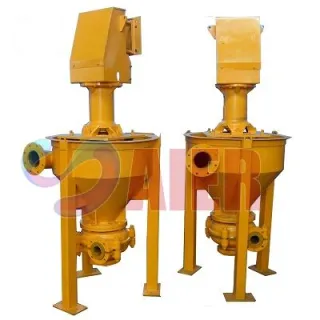Sep . 07, 2024 20:40 Back to list
Froth Pump Solutions - Efficient Froth Handling & Transfer
Understanding Froth Pumps Technology and Applications
Froth pumps are specialized types of pumps designed to handle slurries containing a significant proportion of air or gas bubbles, commonly referred to as froth. These pumps play a crucial role in various industries, particularly in mineral processing, pulp and paper production, and wastewater treatment, where the transportation of frothy mixtures is essential.
The Mechanism Behind Froth Pumps
Froth pumps are engineered to manage the challenges posed by frothy fluids. Unlike conventional pumps, which often struggle with core issues such as air locking or reduced flow rates when dealing with frothy materials, froth pumps utilize a unique operating principle. They are typically designed with larger impellers and specific channel geometries to accommodate the volume of air or gas present in the slurry.
The operating principle of a froth pump is based on the fluid's density and viscosity, which changes as air interacts with the liquid. Froth pumps create an environment that allows for the efficient movement of these materials without losing the air content that provides buoyancy. This is particularly important during the processing of minerals, where the separation of valuable ore from waste material is paramount.
Applications of Froth Pumps
froth pump

One of the most prominent uses of froth pumps is in the mining industry, particularly in the flotation process
. During mineral processing, froth flotation is employed to separate desired minerals from gangue by introducing air bubbles into a slurry. The desired minerals attach to the bubbles, forming a froth layer that can be skimmed off. Froth pumps facilitate the transportation of this frothy mixture through the processing plant, ensuring that the valuable minerals are efficiently recovered.In addition to mining, froth pumps find applications in the pulp and paper sector. The pulping process generates a considerable amount of frothy slurry composed of water, wood fibers, and air. Here, froth pumps are used to convey this mixture through various stages of the production process, aiding in the efficient production of paper products.
Wastewater treatment is another critical area where froth pumps are employed. In this context, froth pumps help in the aeration processes and the removal of solids and contaminants from wastewater. The ability to manage slurries rich in air enables these pumps to contribute to cleaner water systems and more effective waste management practices.
Advantages of Froth Pumps
The design and functionality of froth pumps offer several advantages over conventional pumping systems. Softer impeller designs reduce wear and tear, enhancing the longevity of the pumps. Additionally, the ability to handle frothy mixtures without losing efficiency increases the overall productivity of operations. These pumps can also be customized to meet specific requirements, making them versatile tools across various industrial applications.
In conclusion, froth pumps play an indispensable role in industries where the handling of frothy slurries is essential. From mineral processing to wastewater treatment, these pumps are designed to overcome the unique challenges posed by air-infused fluids. Their specialized construction and innovative operating mechanisms ensure that they provide efficiency and reliability, making them a vital component of many industrial processes. The continued evolution of froth pump technology will likely lead to further enhancements in performance and energy efficiency, reinforcing their significance in modern engineering and industry.
-
Durable Centrifugal Wastewater Pumps China Abrasives Pump Suppliers
NewsMay.21,2025
-
High-Quality Horizontal Centrifugal Slurry Pump China Factory & Supplier
NewsMay.21,2025
-
China Slurry Pump Rubber Parts - Durable & Custom Solutions
NewsMay.20,2025
-
Heavy Duty Vertical Froth Pumps - China Factories & High-Quality Suppliers
NewsMay.20,2025
-
High-Quality Excavator Dredge Pump Suppliers China Manufacturers
NewsMay.19,2025
-
China Slurry Pump Rubber Parts - Durable & Custom Solutions
NewsMay.19,2025
